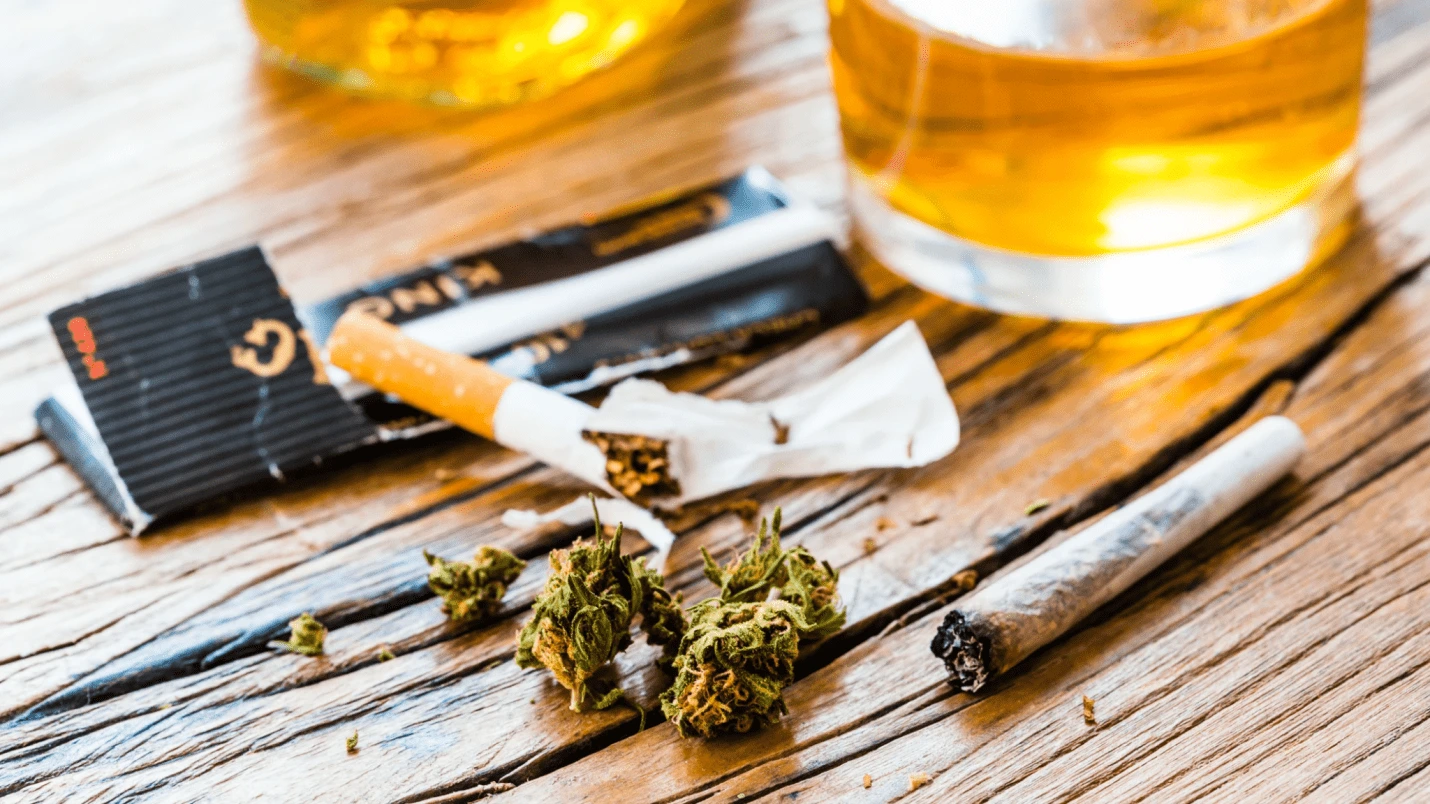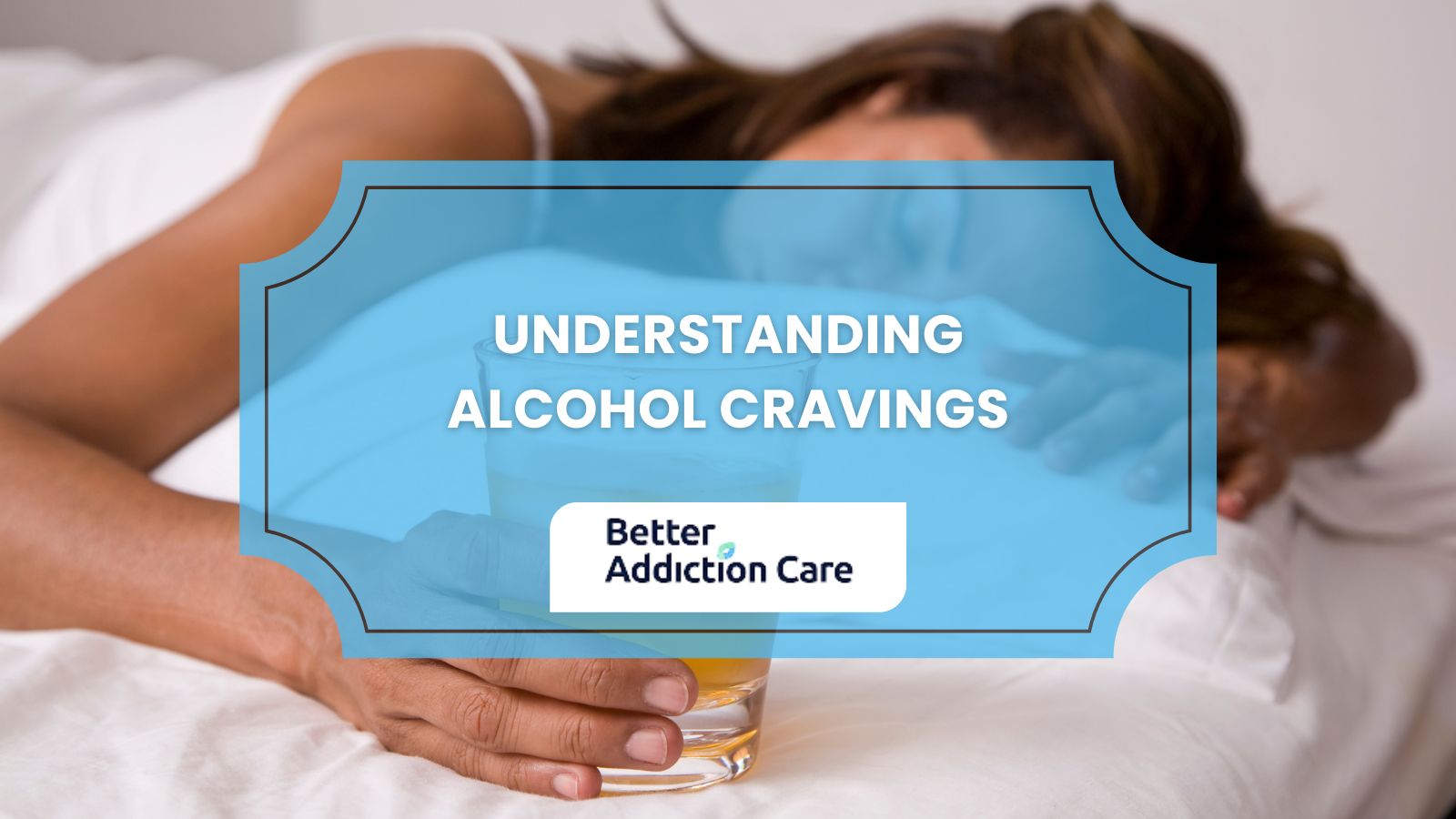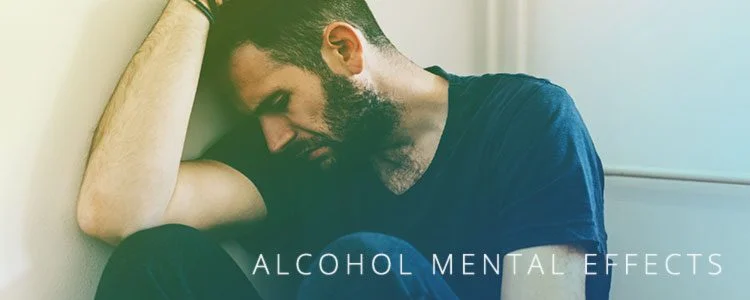Marijuana and Alcohol Consumption: What happens when you mix Marijuana and Alcohol, Risks and Solutions
Marijuana and alcohol consumption refers to the use of both substances, either simultaneously or within proximity in time. This combined use, called “crossfading,” amplifies the effects of each substance, leading to heightened intoxication, increased health risks, and greater potential for substance-related harm.

Smoking marijuana and drinking alcohol have serious health concerns that you should consider. Each substance has different health implications that might put your life at risk. Nowadays, many states allow marijuana for both medical and recreational use. Though alcohol is a drug that is both socially and legally acceptable, both substances have the quality of increasing the overall health risks for those who use them.
The health risks are greatest when these substances are consumed together, but even when consumed separately, many health risks have been associated. In the case of marijuana, scientists have described acute problems with memory, coordination, and judgment, and chronic issues such as respiratory problems, cardiovascular disease, and cognitive impairment. Alcohol also has negative consequences, such as addiction, heart problems, and liver damage. It should be noted that when these drugs are consumed simultaneously, although they may have different effects, both act synergistically, enhancing each other.
What happens when you mix alcohol and Marijuana?
When you mix alcohol and marijuana, often called "crossfading," the effects of both substances are amplified, leading to a state of heightened impairment. This combination can result in a more intense and unpredictable experience than using either substance on its own.
Listed below are 6 effects of mixing alcohol and marijuana.
- Intensified Intoxication: The effects of alcohol and marijuana are not simply additive; they are synergistic. This means the combined "high" is significantly more powerful and can be overwhelming.
- Increased Risk of Nausea and Vomiting: A common and immediate consequence of mixing the two is "greening out," which involves severe nausea, dizziness, and vomiting.
- Impaired Judgment and Coordination: The combined depressant effects on the central nervous system severely impair your coordination, reaction time, and ability to make sound decisions.
- Masked Effects: Marijuana can sometimes mask the feeling of being drunk, leading you to drink more alcohol than you normally would, increasing the risk of alcohol poisoning.
- Cardiovascular Strain: The combination can put additional stress on your heart, as alcohol can slow some functions while marijuana can increase heart rate.
- Lowered Inhibitions: The mix significantly lowers your inhibitions, which can lead to engaging in risky and impulsive behaviors.
What Are the Individual Risks of Marijuana and Alcohol?
Using marijuana hurts your mental and physical health in several ways. Marijuana use leads to short-term cognitive impairment, such as problems with remembering and coordination. Smoking marijuana causes breathing problems like asthma and irritation of the lungs.
For teens and young adults, long-term use may lead to cognitive problems and changes in how the brain develops. Additionally, new evidence shows that marijuana use may also increase cardiovascular risks, such as heart rate and blood pressure, which may make cardiovascular conditions worse.
Alcohol consumption has a significant impact on your entire life as well as your health in general. An example of this is the effects of alcohol on the liver, in which cirrhosis, fatty liver disease, and chronic inflammation are common manifestations of the effects in this organ. The fact that alcohol intake is strongly linked to different types of cancer is sometimes overlooked despite its frequency. Also, alcohol has been proven to affect the cardiovascular system, leading to cardiomyopathy, high blood pressure, and an
increased risk of stroke. Being a very addictive drug, alcohol use disorder (AUD) is often the result of people being hooked on it. Lastly, drinking makes it more difficult to plan your activities and make wise judgments, which raises the possibility of mental and physical issues, including anxiety and depression.
The table below shows the individual effects of Marijuana and Alcohol.
Issue |
Marijuana |
Alcohol |
|
Cognitive Effects |
Short-term impairments in cognition, including memory and coordination. Long-term cognitive deficits potentially increase the risk of suffering from dementia. |
Impaired judgment and coordination. Alters external and self-perceptions. Increased the chances of taking risky behaviors—increased cognitive decline associated with malnutrition and thiamine deficiency. |
|
Respiratory Health |
Bronchitis, lung irritation. |
Increased risk of broncho-aspiration and pneumonia associated with decreased consciousness. |
|
Brain Development |
Potentially impacts brain development in adolescents. |
Risk of fetal alcohol syndrome in pregnant women. Risk of imbalance in brain metabolism and neuronal shrinkage. |
|
Cardiovascular Risks |
Emerging evidence suggests an increased risk for tachycardia, hypertension, and an increased risk of developing arrhythmias. |
Increases the incidence of high blood pressure, dilated cardiomyopathy, and stroke events. |
|
Liver Damage |
No reports. |
Risk of developing liver inflammation, fatty liver disease, and cirrhosis. |
|
Accidents/Injuries |
Not common. |
Increased risk of accidents, falls, and injuries. |
|
Addiction |
Frequent dependence. |
Alcohol use disorder (AUD) is frequent dependence. |
|
Mental Health |
There have been no substantial reports so far. |
Risk of depression, anxiety, and cognitive impairment. |
What are the Risks of Using Marijuana and Alcohol Together?
Using marijuana and alcohol together can compound all of the risks associated with each substance individually, creating potential health hazards that go far beyond those of using either substance separately. You should be aware that when these drugs are used together, their combined effects can lead to more pronounced impairments in cognitive function, coordination, and judgment, putting your health and the health of those around you at risk. This mixture is dangerous because it increases the risk of accidents, injuries, and risky behaviors.
Mixing marijuana and alcohol can alter your body’s physiology, pushing it to abnormal states and potentially exacerbating your metabolic demand due to increased heart rate and blood pressure, which can pose serious health risks - including death - particularly for people with pre-existing cardiovascular disease.
When talking about your mental health, the interaction between marijuana and alcohol can intensify negative effects, contributing to increased anxiety, paranoia, and cognitive impairment.
The concurrent use of marijuana and alcohol can elevate the risk of suffering from adverse health outcomes.
Is “Greening Out” More Likely to Happen if I Also Consume Alcohol?
Yes, greening out is more likely to happen when using marijuana. One popular phrase to characterize the sensation of overdoing marijuana consumption with unpleasant or upsetting sensations is "greening out." Usually, one feels nauseated, lightheaded, anxious, paranoid, and occasionally vomiting.
When taken simultaneously, the effects of the two substances can be amplified, which is particularly true when considering how they influence coordination, judgment, and cognitive function. Ingesting both alcohol and THC, the psychoactive component in marijuana, increases the intensity of the high compared to taking either substance alone.
"Greening out" makes it easier to smoke more than planned, and this raises the risk of passing out. Overall, combining alcohol and marijuana can increase the chance of greening out and other harmful responses. Thus, both substances should be consumed safely and in moderation, if at all.
What Are the Signs Someone Is Abusing Marijuana and Alcohol?
Different people may show different signs of marijuana abuse, but some of the most common ones are increased tolerance and withdrawal symptoms. People who are abusing marijuana may need more of it to get the same benefits, or they may experience withdrawal symptoms like irritability or mood swings when they try to cut back.
Other common symptoms include a lack of interest in once-enjoyed social activities and a general disregard for one's responsibilities, with marijuana use taking precedence over both. Financial and legal problems may arise due to erratic behavior and overspending on marijuana, but also as a result of legal issues relating to the drug's use. Bloodshot eyes and behavioral changes like paranoia or mood swings could be signs of marijuana abuse, particularly if they last and get in the way of regular life.
Also, while trying to cut back on or quit alcohol, people may feel withdrawal symptoms like tremors or anxiety, or they may need more alcohol to get the same effect. Legal or financial problems and neglect of duties are also common in alcohol abuse. People who drink too much often put their drinking ahead of their responsibilities and end up in trouble with their families, the law, or their finances.
Physical signs like slurred speech and changes in behavior like mood swings or violence can also be signs of alcohol abuse, especially if they last for a long time and get in the way of daily life. People who are acting in troubling ways because they are using drugs may benefit from getting help from a medical worker or counselor. This can help them deal with possible problems and find the right treatment options.
Why do people take Marijuana and Alcohol?
People frequently mix marijuana and alcohol to achieve a stronger high or a more altered state of consciousness. Combining these substances can raise the risk of cognitive impairment, impaired motor abilities, and poor decision-making ability. Furthermore, combining marijuana and alcohol can exacerbate the negative health consequences of both drugs, such as anxiety, nausea, and a racing heart. While infrequent usage does not offer a considerable health risk, the combination of the two substances significantly increases the possibility of negative results; therefore, caution is suggested.
What is the treatment for intoxication from mixing alcohol and Marijuana?
The main solution for alcohol and marijuana is to avoid mixing alcohol and marijuana altogether. For those who are struggling with a substance use disorder, there are a range of treatment methods that are categorized into harm reduction strategies and treatment for substance use disorders.
Harm Reduction Strategies
These are measures to reduce the negative consequences for individuals who choose to use both substances.
-
Go Slow and Low: Start with very small amounts of both substances, especially if you are not an experienced user. Your body processes alcohol and THC at different rates, and their combined effects are often more potent than expected.
-
Consume Marijuana First: Research suggests that using marijuana before drinking alcohol may lead to consuming less alcohol overall. However, this is not a guarantee and does not eliminate the risks. The reverse—drinking alcohol before using marijuana—is more likely to intensify the effects of THC and increase the risk of an unpleasant reaction.
-
Stay Hydrated and Eat: Drink plenty of water and eat a meal beforehand. This can help slow the absorption of alcohol and mitigate some of the dehydrating effects of both substances.
-
Plan Ahead: Never drive or operate machinery after mixing alcohol and marijuana. Have a designated sober driver or use a ride-sharing service. It's also wise to have a "safety plan" with friends, setting limits on consumption and agreeing to look out for each other.
-
Know the Signs of Overdose: Be aware of the signs of alcohol poisoning (confusion, vomiting, slow or irregular breathing, cold skin) and "greening out" (severe nausea, dizziness, anxiety). If you or a friend experiences these symptoms, seek immediate medical attention.
Treatment for Polysubstance Use Disorder
If an individual finds themselves unable to control their use of alcohol and marijuana, or if it's negatively impacting their life, they may be dealing with a polysubstance use disorder. The solutions in this case involve professional help.
-
Medical Detoxification: The first step is a medically supervised detox. This is especially critical for alcohol dependence, as withdrawal can be dangerous and life-threatening. Medical professionals can provide round-the-clock care and medications to manage withdrawal symptoms.
-
Behavioral Therapies: After detox, various therapies can help individuals understand the root causes of their substance use and develop healthier coping mechanisms. Common and effective therapies include:
-
Cognitive Behavioral Therapy (CBT): Helps individuals identify and change problematic thought and behavior patterns related to substance use.
-
Motivational Enhancement Therapy: Helps people build motivation and set realistic goals for recovery.
-
Family Therapy: Involves family members to improve communication and create a supportive environment for recovery.
-
-
Medication-Assisted Treatment (MAT): For alcohol dependence, medications like naltrexone, acamprosate, or disulfiram may be prescribed to reduce cravings and help prevent relapse.
-
Support Groups: Groups like Alcoholics Anonymous (AA) and Narcotics Anonymous (NA) provide a supportive community and a structured program to help individuals maintain sobriety.
-
Comprehensive Care: Because polysubstance use is often linked to other mental health conditions like depression or anxiety, treatment programs should address all co-occurring disorders.
Should I Seek Help if I Cannot Stop Using Marijuana and Alcohol?
If you find that you are unable to quit using substances like alcohol and marijuana despite your wish to do so, or if you are now experiencing negative repercussions as a result of your substance use, it is strongly recommended that you get assistance. Abusing or being addicted to drugs can have several negative effects on many areas of your life, such as your physical and mental health, relationships, and legal situation. Taking care of these problems right away is important to stop more damage and improve your life.
If you or someone you know is battling substance misuse, there are several resources available to help. If you or someone you care about is struggling with substance abuse, seeking professional treatment from a therapist or addiction specialist can offer tailored advice and therapy to help you identify and overcome your triggers. Furthermore, programs like Narcotics Anonymous (NA) and Alcoholics Anonymous (AA) provide a feeling of belonging and empathy from people who have been through the same things.
There may also be medical options, such as medicine to alleviate cravings or withdrawal symptoms caused by substance misuse, that could be prescribed by a healthcare provider. If you need help finding the right treatment, you can try to find help in our Treatment Center Finder.







